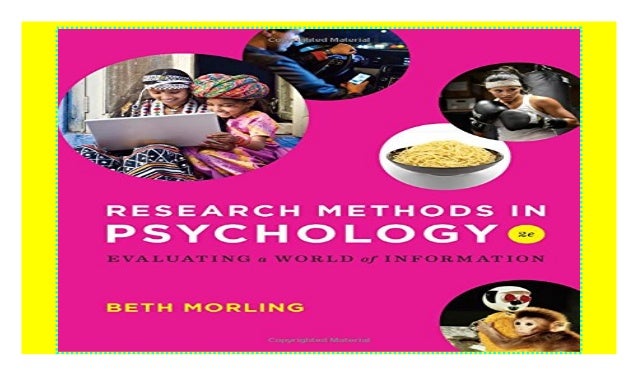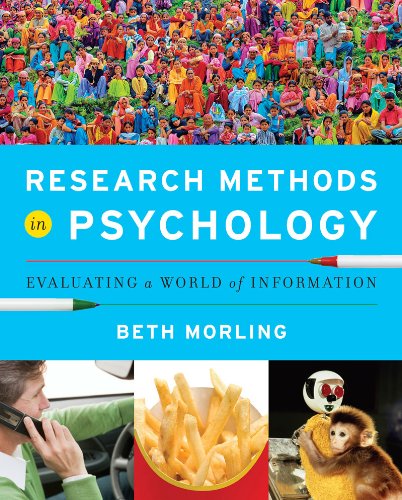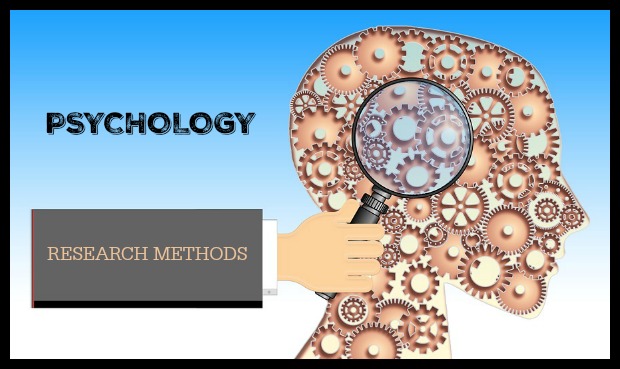Research Methods In Psychology: Evaluating A World Of Information

We are bombarded daily with information, but how do we know what to believe? Psychological research methods offer critical tools for navigating this complex landscape and discerning fact from fiction.
This article explores how understanding these methods empowers individuals to critically evaluate information, make informed decisions, and avoid manipulation in an era of widespread misinformation.
The Scientific Method: A Foundation for Truth
At the heart of psychological research lies the scientific method. This systematic approach involves formulating a hypothesis, designing a study, collecting data, analyzing results, and drawing conclusions.
Rigorous application of this method minimizes bias and maximizes the reliability of findings. By understanding this process, individuals can assess the validity of claims presented as "scientific" facts.
Key Research Designs
Psychologists employ various research designs, each suited to answer specific questions. Experimental studies manipulate variables to determine cause-and-effect relationships.
Correlational studies examine the relationship between variables without manipulation. While correlation doesn't equal causation, it can identify potential associations that warrant further investigation.
Descriptive studies, like surveys and observations, provide detailed accounts of behaviors and attitudes. These designs offer valuable insights into the prevalence and nature of psychological phenomena.
Sampling and Generalizability
A crucial aspect of research is selecting a representative sample from the population of interest. The goal is to ensure that the findings can be generalized to a broader audience.
Random sampling, where every member of the population has an equal chance of being selected, is often considered the gold standard. However, practical constraints often necessitate the use of other sampling methods.
Understanding sampling techniques helps individuals assess the extent to which research findings apply to their own lives or communities.
Data Collection Techniques
Psychologists use a variety of techniques to collect data, including surveys, interviews, and observations. Surveys involve administering questionnaires to large groups of people.
Interviews allow for more in-depth exploration of individual experiences. Observational studies involve observing and recording behavior in natural or controlled settings.
Each data collection method has its strengths and limitations, and researchers must carefully consider these factors when designing their studies.
Analyzing Data: Statistics and Interpretation
Once data is collected, it must be analyzed to identify patterns and relationships. Statistical methods are used to summarize and interpret data, allowing researchers to draw conclusions about their hypotheses.
Understanding basic statistical concepts, such as mean, standard deviation, and correlation coefficients, is essential for interpreting research findings. It's also crucial to be aware of potential biases in data analysis.
Statistical significance indicates the likelihood that the results are not due to chance, but it does not necessarily imply practical significance or real-world importance.
Evaluating Research: Critical Thinking Skills
Evaluating research requires critical thinking skills and a healthy dose of skepticism. Consider the source of the information, the methodology used, and the potential biases that might have influenced the findings.
Look for evidence that the study was peer-reviewed, meaning that it was evaluated by other experts in the field. Peer review helps to ensure the quality and rigor of research.
Pay attention to sample size, the representativeness of the sample, and the limitations of the study. Don't accept claims at face value; always seek out multiple sources of information.
Spotting Misinformation: Red Flags to Watch Out For
In today's information age, it's more important than ever to be able to spot misinformation. Be wary of claims that are based on anecdotal evidence, personal opinions, or unsupported assertions.
Watch out for sensational headlines and emotional appeals that are designed to manipulate readers. Question the motives of the source and consider whether they have a hidden agenda.
Consult reputable sources of information, such as academic journals, government agencies, and non-profit organizations. Don't rely solely on social media or unverified websites.
Ethical Considerations in Psychological Research
Ethical considerations are paramount in psychological research. Researchers must obtain informed consent from participants, protect their privacy, and minimize any potential harm.
Institutional Review Boards (IRBs) review research proposals to ensure that they meet ethical guidelines. These boards help to safeguard the rights and welfare of research participants.
Understanding ethical principles can inform your evaluation of research and help you identify studies that may have violated ethical standards.
Next Steps: Promoting Media Literacy
Moving forward, promoting media literacy is crucial. Education initiatives should focus on teaching individuals how to critically evaluate information and distinguish between credible and unreliable sources.
Collaborations between researchers, educators, and journalists are needed to disseminate accurate information and combat misinformation. By empowering individuals with the tools to navigate the information landscape, we can foster a more informed and discerning society.
Continued research is essential to refine our understanding of how people process information and make decisions. This knowledge can be used to develop effective strategies for promoting critical thinking and combating misinformation.





![Research Methods In Psychology: Evaluating A World Of Information PPT - Download Book [PDF] Research Methods in Psychology: Evaluating a](https://image7.slideserve.com/12522529/research-methods-in-psychology-evaluating-a-world-l.jpg)








.webp)



